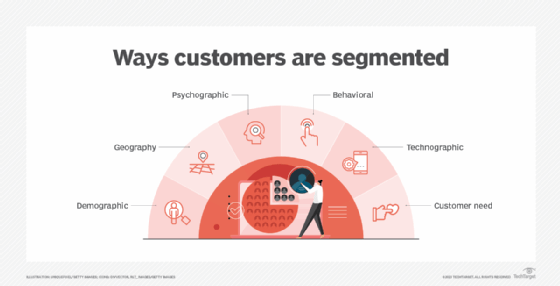The best way to improve marketing return on investment is by having a clean CRM system. Business data integrity allows for higher usage of CRM data, hence increased success of marketing strategies. A well-organized CRM improves customer engagement and nurtures leads with effectiveness while providing insight into customer behavior and preferences.
Business that prioritize CRM data integrity sees an average increase of 23% in their marketing performance metrics. This improvement translates into better-targeted outreach initiatives and personalized marketing campaigns, driving higher conversion rates. Ultimately, a clean CRM allows companies to harness the full power of data-driven marketing strategies.
Benefits of clean CRM for marketing ROI
Clean CRM offers several advantages in the direction of improved marketing ROI, including:

- Data accuracy: Maintaining data accuracy in CRM systems means that all information is trustworthy. This is critical for informed marketing decisions.
- More profound customer insights: A clean CRM offers deeper insights into customer behavior, thus enabling personalized marketing campaigns to resonate with target audiences.
- Lead nurturing effectiveness: Optimized CRM data would lead to better nurturance of leads, resulting in more conversions.
- Smooth sales pipeline management: Clean data facilitates better sales pipeline management and allows teams to spot bottlenecks and optimize processes.
Enhancing CRM data integrity
Any clean CRM initiates the strategized ways of managing data. Here’s a quick rundown of its importance:
The integrity of CRM data is key when devising data-driven marketing strategies. A company can segment its customers correctly and understand the user’s behavior. If the data is clear and well-organized, every marketing effort will be specific and efficient.
CRM data hygiene practices
To ensure more integrity in CRM data, companies should incorporate some best practices in data hygiene. Following is a list of a few absolute musts to achieve the same:
- Routine data audits: Companies should perform routine audits on the CRM data to trace out inaccuracies and rectify them. It helps in ensuring accuracy and integrity within the data.
- Automated data cleanup tools: They should make use of automated data cleanup tools. This helps identify duplicates, correct errors, and guarantee consistency among different data.
- User behavior analysis: Analyzing user behavior to learn about patterns and preferences. This could come in handy in marketing strategies and to improve customer engagement.
Optimizing marketing strategies through a clean CRM
A clean CRM lets business owners optimize marketing strategies. A brief overview of how this optimization occurs is presented below:
Through CRM optimization, a company will be in a better position to devise an effective data-driven marketing strategy with success. Due to such optimization, more outreach initiatives can reach out to these customers, thus engaging them and improving the general marketing performance.
Customer segmentation improvements
Of the four areas of the marketing mix, the most important one is selecting the right customer segments. Here’s how a clean CRM contributes:

- Better targeting: With customer information that will allow you to effectively target an organization can group the audience according to various criteria: demographic, behavioral, and others. This approach results in improved campaigns to the benefit of the target groups.
- Personalized marketing campaigns: They also make it possible to market specifically to the clients, which is likely to bear fruit. Segmented messages are more effective in communicating with the customers and even improve the experience.
- Increased CRM user adoption: This means that when users trust data in the CRM, there will be a high chance of engagement with the CRM. These are capable of leading to a better understanding of how customers engage with the services or products in question due to the increased user adoption.
Solutions for maintaining a clean CRM
As a result, organizations need to employ proper strategies and solutions to endorse a clean CRM. Here are several recommendations:
- Invest in CRM training: Make sure that all of the team members appropriately use CRM. This training should include; Data entry etiquette, data sanitation, and the need to have accurate data.
- Establish clear data entry guidelines: They should set up rules for how data should be entered to help have some standard procedures in its input. Such guidelines should include methods of entering customer data, dealing with data duplication, and record updates.
- Leverage marketing automation integration: This means that there is a need to ensure that marketing automation tools are linked to the CRM in order to facilitate the flow of data. It increases the efficiency and effectiveness of the data collected as well as helps to achieve better marketing strategies in concordance with the collected data.
- Regularly update customer records: Provide a procedure for managing and updating customer records frequently. Some of the things that should be done through this process include; verification of customer data and deletion of robots or irrelevant lists.
- Monitor marketing performance metrics: Marketing departments should compare marketing performance metrics in order to evaluate the effectiveness of campaigns. Utilize these insights to make progress on optimal approaches and enhance desirable outputs, or ROI.
Conclusion
In a nutshell, clean CRM is important for enhancing marketing ROI. With better integrity of data and effective strategies for data management, businesses can improve customer engagement and make the nurturing of leads more effective. Investing in CRM optimization lets companies create personalized marketing campaigns and targeted outreach for better conversion rates.
Periodic audits and automated cleanup tools keep customer data current and valid through CRM data hygiene best practices. Such attention to maintaining data integrity provides an organization-wide impact, improving marketing performance metrics and driving deeper customer insights.
Success in today’s data-driven marketing environment starts with a clean CRM. Only those organizations that invest resources in keeping their CRM clean and accurate would benefit by gaining higher returns on investment in marketing and also a closer relationship with customers.




